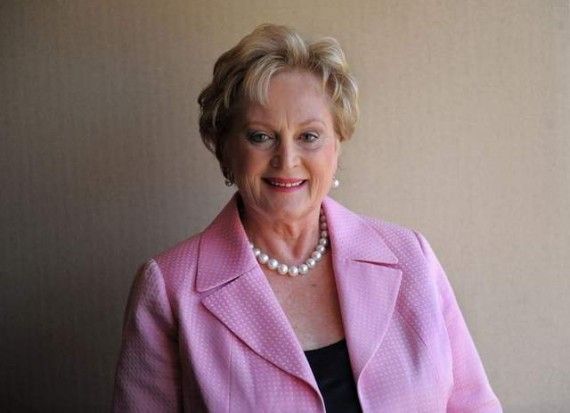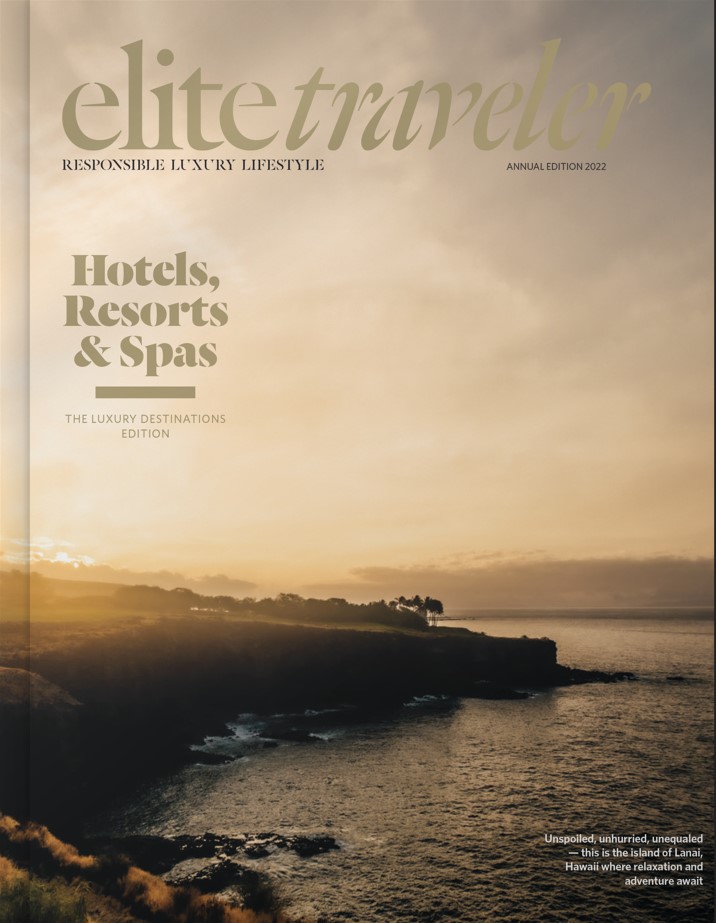
Photo Courtesy of Christel House
Christel DeHaan sets empathy into action, daily. Yet, away from her exceptional work at Christel House, and from the timeshare/fractional industries she helped establish, her name is not yet a household word. But for those who know that for thousands of children, the cycle of poverty has been permanently broken because of her work, her name could, and no doubt should be a household word.
 Born in Nordlingen, Germany, she learned early about the terrible consequences of war, especially on children. She left home at age 16, went to England, then came to the United States, eventually settling in Indiana. In 1973 she married Jon DeHaan, where they co-founded Resorts Condominum International, RCI. She took over the company’s daily management after he suffered a heart attack in 1979. When she and Mr. DeHaan divorced in 1987, she was awarded half the company, and in 1989 she purchased the rest from her ex-husband for $67.5 million. Six years later she sold RCI for many times that amount.
Born in Nordlingen, Germany, she learned early about the terrible consequences of war, especially on children. She left home at age 16, went to England, then came to the United States, eventually settling in Indiana. In 1973 she married Jon DeHaan, where they co-founded Resorts Condominum International, RCI. She took over the company’s daily management after he suffered a heart attack in 1979. When she and Mr. DeHaan divorced in 1987, she was awarded half the company, and in 1989 she purchased the rest from her ex-husband for $67.5 million. Six years later she sold RCI for many times that amount.
Soon, she founded Christel House International, a charity that builds educational and social programs for children in all parts of the world. Between 1999 and 2002, Christel House opened five learning centers — in Mexico, India, South Africa, Venezuela and the United States. Today, after over a decade of operation, over 3,000 students, families and communities are served. I interviewed her recently about the origins, and the profound legacy of what she does.
JustLuxe: I have interviewed many successful people, and have rarely discovered a co-founder of a highly successful business have the empathy, sympathy and foresight to create a highly successful philanthropy foundation and organizations to help children. Much of the time, business and its corporate aspects seem to override the desire to help children and families create better lives for themselves. What is it in your background and in your foreground that allowed you achieve such a noble goal?
Christel DeHaan: At heart, I am an entrepreneur. Starting with an idea, and creating a product or service that delivers the desired result is enormously gratifying. I am also a problem solver. The process of analyzing root causes, and developing solutions has been applied in both RCI and in Christel House.
As regards RCI, it pioneered the vacation exchange concept, a critical complement to the timeshare product. It overcame the prospective timeshare purchasers’ concerns about being locked into one specific resort for a specific week every year, which is how the timeshare product was first introduced.
With RCI, timeshare owners could deposit their weeks in our “Spacebank” and withdraw a week of comparable value. We had to convince real estate developers in a very depressed U.S. condo market that timesharing would be the answer to slow sales. When RCI was sold in 1996, it had offices in 33 countries, several subsidiaries and annual revenues of over $360 million. Building and growing RCI honed my business skills and focus.
Christel House was also developed to solve a problem. In early 1998, I visited two orphanages in Mexico. That experience touched me deeply. Children were warehoused in crowded dormitories with only a tiny patio for nearly 150 to play. Washing was done by hand, and hung on the roof to dry. The other facility had no electricity — the generator was broken — and water was gathered from a cistern. To get to school, the children walked five kilometers because the school bus was broken. I looked at these conditions and realized writing a check would make life easier for the short term but, in the end, the cycle of poverty into which these children were born was destined to repeat itself for generations.

That realization gave rise to founding Christel House. Education is a great equalizer and the pathway to a better life. But to help impoverished children, it needed to be combined with a holistic approach to human development. Good health and nutrition are basic conditions for learning; we needed to ensure both. To foster good citizenship, we identified four core Christel House Values: Respect, Responsibility, Independence and Integrity; and emphasized character development in addition to our education programs.
Impoverished families and communities struggle with many problems — violence, domestic abuse, alcoholism, drugs, illiteracy — so outreach programs were created to help parents become better caregivers, and to cope with daily challenges. We decided that, rather than living at Christel House, students should return home each evening, carrying with them the lessons and values learned at Christel House and creating a positive force for change in their communities. Courses on topics like combating domestic violence, health and hygiene, HIV prevention and financial management were offered to parents. The main goal was to strengthen the family and to keep the family unit together.
Nor would our work be finished when students graduated from Christel House. The Career Guidance and Work-Study program was developed to mentor and guide students to be successful in university, technical school or the workplace. Only when they become self-sufficient, contributing members of society have we fully achieved the Christel House mission. Actually, some of our Christel House graduates have come to work for RCI.
Coming from the for-profit world, it is hugely stimulating for me to apply my business skills to a charity that focuses on poverty alleviation. This time we are not creating wealth in terms of market capital, return on investment or shareholder value, but rather in terms of human potential and human capital. And, that is exciting and extraordinarily rewarding.

JL: As an adjunct to this question, it’s fairly well-known that the development of empathy starts early, as early as age three. Many feel that putting empathy to good use is a calling, not a job. It is visceral, not cognitive. Tell me a little about your early life and when it was you knew that helping others help themselves was a life goal, and whether it was in business or in philanthropy that this dimension actually got its start.
CD: I grew up in war-torn Germany, when life was hard and resources scarce. My father was killed in the war when I was very young, so I never knew him, but my mother taught my sister and me the importance of generosity and helping others. I have always believed that the more we have, the greater our obligation to share.
JL: How do you see Christel House as an extension of your beliefs and values?
CD: Every human being should live a meaningful life. And that may mean different things to different people. But meaningful it must be and that includes a focus on others. I am very passionate about valuing the “customer,” (in the case of Christel House, our children and families), delivering excellence in all that we do, and operating with the highest degree of integrity. I also love the arts and sports; both are infused in the Christel House curriculum to develop creativity, self expression and competitiveness in our children.
JL: How has your business sense, being a co-founder of RCI, helped you in the early and later development of Christel House Centers?
CD: Planning and an emphasis on good processes have been instrumental in our success. I am both opportunistic and strategic. RCI taught me the importance of being first in the marketplace, and this strategy drove our early expansion. We identified markets and countries of great need and promoted first the time share concept in order to gain resorts for our portfolio. I also recognized the importance of proof of delivery to the market place and the value of an excellent reputation. For this reason, we did not seek publicity for Christel House until we could show convincing evidence that Christel House WORKS. We now have that data, and are eager to share our story.

JL: On that day in Mexico City when you saw that first orphanage, was your vision of what you had to do there an immediate, transformative one? Also, as an adjunct to this did your vision of Christel House come suddenly and because of that experience, or did you have this idea beforehand, so that the orphanage allowed the idea to become more real and practical?
CD: After the sale of RCI, I wanted to do something systemic and transformational. I knew that it would involve children, but was not sure exactly how. It was after the visit to the second orphanage that the Christel House model gelled. I was back in my pioneering mode...the thought of being instrumental in transforming the lives of impoverished children captured my imagination and gave me tremendous sense of purpose.
JL: Are there any areas of the world that you would like to start a Christel House? If so, where are they?
CD: The needs are enormous, and many places could benefit from a Christel House. To do so is a significant financial undertaking. We are opening this August a dropout recovery school in Indianapolis and plan to open another international Christel House within the next two years. Of course we welcome donations and financial support as this would allow us to open more Christel Houses and serve more children. I have made provisions to always fund the general and administrative expenses; hence our donors are assured that 100% of their contributions go directly to providing services for our children.
Countries we are considering for possible expansion include Haiti, Colombia, Southern Sudan, Kenya, Thailand and Uganda as well as adding additional centers in the countries where we are already operating.
JL: Taking a global perspective, what are the most challenging issues you have had to deal with in starting Christel House schools and learning centers in foreign countries? How did you overcome them?
CD: Our biggest challenge is finding highly skilled principals and teachers. Teacher training and preparation in developing countries need much improvement from its present rote learning model. We spend considerable time and money in professional development to deliver the educational quality that meets Christel House standards.

JL: How are you planning for the future? In other words, how do you hope to see Christel House in 50 years?
CD: No matter how we envision the future, there will most likely always be a need for Christel House, so I want the organization to exist beyond 50 years. I see many more Christel Houses opened, I see many students as college graduates, integrating in the work place making a better life for themselves; I see them having families with a strong value system and willing to lend a helping hand. I see doctors, teachers, coaches, musicians, dancers, athletes, electricians — a host of professions. I see greater awareness of Christel House in the public eye and increased support and recognition. I hope that the vision and values important to me as the organization’s founder are still well-entrenched, and continue to manifest excellence, integrity and a focus on our beneficiaries.
JL: If you can put it in one sentence, what do you receive from the work you do?
CD: It indeed can be said with one sentence! Transforming lives is a beautiful and highly rewarding mission.
Visit ChristelHouse.org to learn more.














